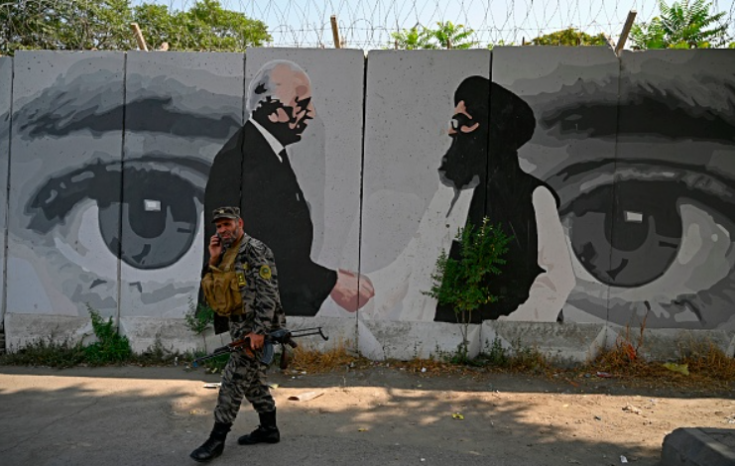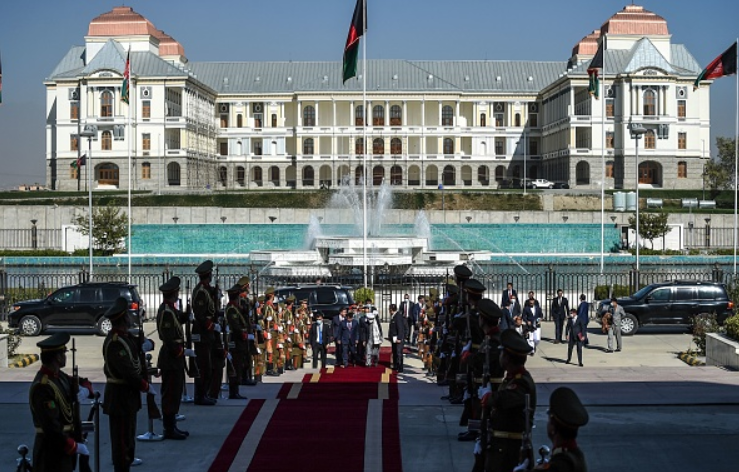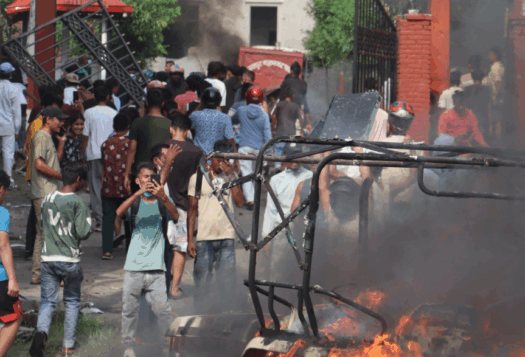
With the U.S. withdrawal and rapid advances by the Taliban, the intensity of the Afghanistan conflict has reached unprecedented levels. In such escalated crises, society is polarized to an extent where pointing out government failures or any criticism of government policies is often perceived as criticism of the state and allying with the insurgency. Yet, accepting realities and constructive feedback is fundamental to gauging public sentiments and calibrating the failure or success of policy. The First Vice President Amrullah Saleh’s recent denial that Afghan troops were surrendering without resistance indicates that the Afghan government is oblivious to the fact that it is losing ground in the narrative war. The Taliban are outmaneuvering the Afghan government by efficiently communicating constructed realities and promoting their cause. This translates into higher morale and conviction of Taliban fighters in comparison to that of Afghan defense forces. Although military experts with reliable field knowledge should assess the Afghan military strategy, the Afghan public also needs to assess the narratives produced by the government and the Taliban to separate myth from reality.
Narratives are employed to motivate fighters and legitimize group ideology. When conflicts protract beyond twenty years, the original cause of the conflict is often forgotten or changed. The conflict in Afghanistan has protracted long enough for the initial motives of both the Taliban and the Afghan government to dissipate. The Afghan government cannot expect the cause of defending the republic to be enough for its forces to fight with conviction nor can the Taliban use the call of expelling foreign troops as the driving force for its fighters. These changes in original motives are driving a narrative contest between the republic and the Taliban in three main aspects: the religious legitimacy narrative, the foreign agent narrative, and the impending victory narrative. The republic is currently losing the narrative war, as is seen in the little resistance shown by defense forces to recent Taliban takeovers of districts. The government has continuously failed to recognize the importance of challenging narratives propagated by the Taliban and cannot expect victory without effectively competing in the narrative contest.
The Army of God
The Taliban’s narrative on the religious legitimacy of its cause was largely overlooked by the Afghan government. Considering the Taliban are mullahs (religious scholars) and talibs (religion students), they were granted a level of religious legitimacy in Afghanistan. The Afghan government has been trying to convince religious councils inside Afghanistan and abroad to issues rulings that declare the Taliban’s struggle un-Islamic. However, Sunni Islam unlike some Christian denominations and Shiite Islam, does not have a central jurisprudence authority. Thus, many Afghans find the rulings of local mullahs more reliable than rulings from external or foreign Islamic forces.
The government has continuously failed to recognize the importance of challenging narratives propagated by the Taliban and cannot expect victory without effectively competing in the narrative contest.
A major reason why the Afghan government has not sufficiently tackled the Taliban’s religious narrative is because it failed to provide alternative religious schooling. As the 9/11 commission labeled madrassas (religious schools) incubators of violent extremism, the Afghan government did not invest in government-run religious institutions to avoid scrutiny. This led to a dichotomy of government-run modern schools and Taliban-run religious schools in the country. Had the government built its own religious schools and dictated its curriculum, it could have managed to connect with religious populations, and, through this, contest the religious legitimacy narrative claimed by the Taliban.
Puppets of a Foreign Power
The other narrative the Taliban has used to derive meaning for their cause is the claim of fulfilling the religious duty of thwarting enemy forces by expelling foreign troops, a narrative that has shifted to dethroning the alleged puppet regime left by foreign tyrants. However, the government has somewhat successfully countered this claim by forwarding its own narrative on how the Taliban are foreign agents. Government officials, such as First Vice President Saleh and National Security Advisor Hamdullah Mohib, have described the Taliban as Pakistani agents in their recent statements. This narrative is projected onto the battlefronts where military officers believe that losing land to Pakistan would bring shame to the country. The foreign agent rhetoric inculcates a sense of patriotism amongst the Afghan military, at the cost of deteriorating ties with neighbors like Pakistan.

Though the democratic processes and structure of Afghanistan are questionable, the country has an internationally recognized government, making the puppet state narrative forwarded by the Taliban appealing only to Taliban fighters. The government narrative that the Taliban are in fact little more than foreign agents is finding traction amongst the urban population. However, the government’s efforts in projecting the Taliban as foreign entities serves to hide the government’s strategic and political failures. By evoking hatred against the Taliban, it hopes to distract the populace from critiquing the national government. For instance, officials have been quick to point fingers towards Pakistan for the failing peace process but pass over their own failure to produce a consensus on a peace proposal for over a year. A matter of concern is also the targeting of journalists criticizing either the Taliban or Afghan government.
Victory, Near at Hand
The decision of the United States to negotiate and settle the conflict with the Taliban directly without involving the Afghan government and withdrawing from Afghanistan without defeating terror forces has led the Taliban to believe that it has defeated the United States and its allies. This narrative of defeating the world hegemon has created a sense of pride and momentum amongst the Taliban, which is then used to march onto Kabul. A sense of impending victory has muffled pro-negotiation voices within the Taliban movement and projects Afghan defense forces as the defeated. The Taliban’s use of Twitter to broadcast videos of surrendering Afghan National Defence Forces and their messaging on their triumphs in different districts and cities is outdoing the government’s efforts to appear a winning force in the current conflict. The government should deploy manpower to better utilize social media by broadcasting state victories. For now, considering the Taliban’s aggressive messaging, the government should hold its ground and ride the current offensive out. It is highly unlikely that the Taliban can sustain such an intensity for long periods post-withdrawal since the momentum is bound to wear off.
A sense of impending victory has muffled pro-negotiation voices within the Taliban movement and projects Afghan defense forces as the defeated.
The Colombian Path: Changing the Narrative
The lack of resistance to the Taliban is due to a plethora of domestic and regional factors. Yet, it is important to understand the vital role these narratives play in internal power politics. On the religious legitimacy front, the government could evaluate the utility of embedding religious scholars with its armed forces units or form a council of religious leaders that could create a sense among rural populations that their values are reflected within the state. The government of Afghanistan could also create a body of international and local experts that can advise the government on its communication strategies to successfully manage this game of narratives, much like former President of Colombia Juan Manuel Santos did to reframe the conflict in his country.
Better messaging that broadcasts Taliban atrocities and balances out the Taliban use of social media would help in manufacturing support for the republic locally and internationally. The international community and regional players, in case of a prolonged civil war, would likely shift their stance on the Taliban with the United States and United Nations imposing sanctions, a preferred option as per Biden’s interview regarding Afghanistan in February 2020. Documenting and broadcasting atrocities committed by the Taliban would help in realizing such sanctions and pressure on the Taliban. The Afghan Republic needs to start doing better at this narrative contest if it hopes to win support in what appears to be an impending civil war.
***
Image 1: WAKIL KOHSAR/AFP via Getty Images
Image 2: WAKIL KOHSAR/AFP via Getty Images


